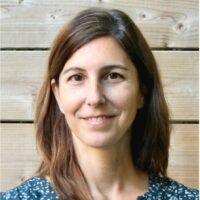
Rachelle Campigotto, a faculty member in York University’s Faculty of Education, is helping facilitate community placement experiences for aspiring teachers that combine theoretical knowledge with hands-on experience and realities that will better prepare students for their future careers.
Abdel Esack can’t help but smile when he talks about the practical experience portion of York University’s educational studies program, which he did with Generation One, an after-school program for at-risk youth near the York University Keele Campus.
“It brought me back to my roots,” says the mature York student who was once a high-school teacher working with underprivileged youth in his native country of Trinidad.
Similarly, Generation Chosen found him working with boys, age 12 to 18, in a program that combined academics with basketball. A lot of roughhousing could break out sometimes among the teenagers, and how with hands-on experience versus those with just (to-date) theoretical knowledge stood out to Esack, who was familiar with roughhousing from his experiences in Trinidad.
“What was interesting was that when the adults, mainly us from York University, saw the roughhousing, a lot of them were more inclined to stop it or try to intervene, whereas the counsellors didn't. They let it play out,” Esack says, recognizing that reaction – letting it play out and sort itself – comes from an experience-gained understanding of the value in “stepping back, observing, being non-judgmental.” It showed Esack and the other students when to apply theories they learned in the classroom and when to step back, a great example of the power of hands-on experience.
Andrew Hammond, a Bachelor of Education student, learned the same lesson, but in a different way, in his community placement with Big Brothers Big Sisters in York Region.
Hammond mentored three boys in the program: a Grade 8 child and two Grade 6 children. Every week, he met with each child individually to listen to their needs and determine how he would meet them. That included offering academic support and helping to build confidence.
“Going into it, I had a lot of the theory and a lot of the things I’d learned from my classes. The pedagogical frameworks we've learned guided and supported me into this community placement,” says Hammond, whose goal is to be a high school teacher. “It all helped me understand that what we've learned in class can apply in real-life situations, in real-life contexts.”

“There are students who are dealing with challenges and struggles that are not in a textbook or in a lesson. This is real life,” Hammond says. “It gave me the opportunity to experience firsthand, think of things on the spot, and be mindful of making decisions.”
Campigotto, contract faculty in York’s Faculty of Education, is looking to facilitate. A lot of effort by the community practicum office goes into finding appropriate community placements for her third-year educational studies students, she says.
For many of Campigotto’s students, that placement is their first experience working with children, often at-risk children.
“A lot of what my role is is facilitating their learning experience outside the classroom,” she says. "I do things like thinking about making a personal charter or goal setting chart and saying [to the student] 'You can't just go to your community, put in the hours and be like, ‘I'm done. I did it.’ We have to sit down even before you go and ask, ‘What is this community? What are the goals of this community placement?’
The importance of teachers “knowing” their students’ community – that third space, she says – can not be overstressed, notes Campigotto.
“We can't know our students if we don't know the community they're from,” she says. “The more aware you are of the community where your students go after school, where they go to learn, what their family is connected to either through religion or culture, the more that influences the way we understand our students and informs our teaching.”
For many students, that knowledge – often only gained through experience – can be life and perspective changing. "I have had students say to me, ‘I worked with this community, and at first, I'm going to be honest, I wasn't too sure about it. Until I was there and realized, ‘Oh, my goodness, these kids were hilarious. They were so fun. I had the best time, and I learned so much,’” Campigotto recounts.
She believes realizations like that are important for students to experience and for her to help them succeed in their future pedagogical careers – whatever that may look like. “A lot of them want to be teachers, but many of them will go into different educational-focused careers like curriculum development, community work, museums,” Campigotto says. “My role is for [students] to take that experience and think about how it makes sense for their future in education.”
With files by Julie Carl.
